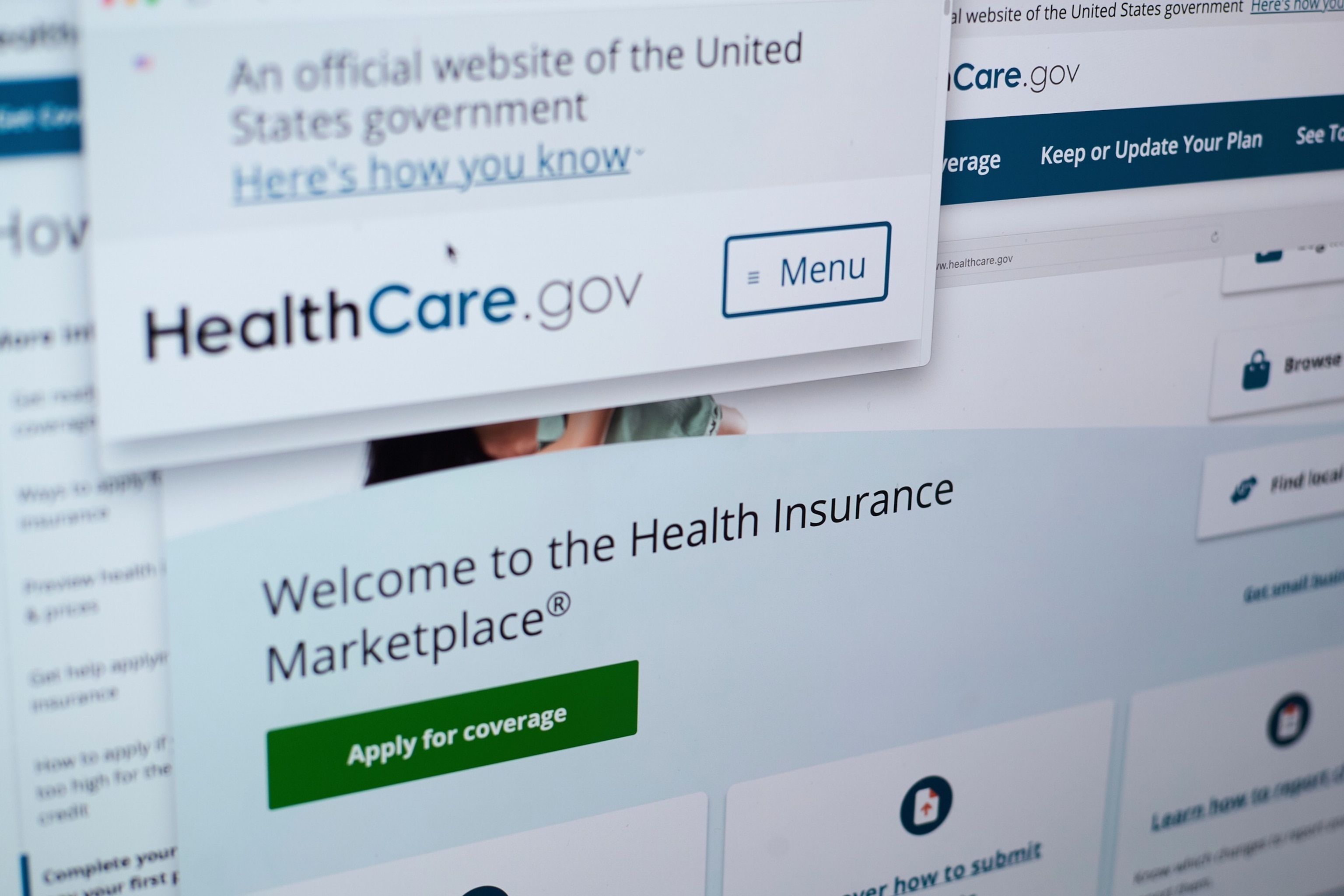Some Americans Fear High Health Insurance Premiums If ACA’s Enhanced Subsidies Expire: ‘It’s Very Worrying’

As the federal government shutdown enters its third week, some Americans are concerned about the future of Affordable Care Act (ACA) subsidies.
Subsidies, or premium tax credits, help reduce or eliminate the out-of-pocket cost of monthly premiums for those who purchase insurance through the health insurance marketplace.
They were improved during the COVID-19 pandemic and are currently set to expire at the end of 2025.
Democrats have been demanding that Republicans approve subsidy extensions before the government reopens, while the GOP says it will not negotiate until a clean funding bill is passed and the government reopens.
A recent KFF analysis found that premium payments could more than double in 2026 if the ACA’s enhanced premium tax credits expire.
Some Americans who rely on tax credits to help pay some or all of their or their families’ premiums told ABC News they worry that if the subsidies expire, they will be forced to choose a less comprehensive insurance plan or be unable to cover the cost of their premiums.

House Speaker Mike Johnson speaks during a press conference, weeks after the continued government shutdown at the Capitol, October 20, 2025.
Kylie Cooper/Reuters
“We can’t afford not to have insurance.”
Doug Butchart, 67, of Eglin, Illinois, told ABC News that his wife, Shadene, has amyotrophic lateral sclerosis (ALS) and currently receives her insurance through the health insurance marketplace.
Shadene Butchart, 58, started with a Blue Cross bronze plan, or the lowest level, but as her illness progressed, the couple decided to upgrade to a gold plan, the highest level, which covers a higher percentage of their health care costs.
The premium for this plan is $1,273.82 per month. The Butcharts receive enhanced premium tax credits that cover $670 of the monthly premium, allowing them to pay themselves $603.82 per month.
Without premium tax credits, Doug Butchart said they can’t afford to pay the entire premium out of pocket each month.
“I have heard [premiums could rise] “Between 25 and 50%,” he said. “And that’s not sustainable because we can’t afford that, but we also can’t afford not to have insurance.”
Doug Butchart said his wife does not qualify for Medicare and they do not meet the income threshold to qualify for Medicaid.
“We’re caught in the middle because, normally with an ALS diagnosis, you’re automatically eligible to receive [Social Security Disability Insurance] and Medicare, but she doesn’t have any work credit, so she doesn’t qualify for Social Security Disability,” he explained. “So right now, we’re doing everything outside of my Social Security, and it’s very difficult trying to pay all the bills and keep the insurance, and if they mess with the marketplace insurance, it’s going to be impossible for us to pay the insurance.”
Now that the Butcharts have met their deductible for the year, combined with the anticipation of a possible loss of tax credits and moving to a lower-tier insurance plan, the couple is trying to use insurance to get all the equipment Shadene Butchart needs to manage her ALS before the end of the year.
This includes an order for a new wheelchair that Shadene Butchart could operate with her eyes, which could cost between $65,000 and $95,000, Doug Butchart said.
Doug Butchart said they may have to switch to a lower-tier plan next year, but he’s not sure if the medications his wife currently takes will be covered by a “lower plan.”

Pages from the Affordable Care Act’s health insurance website, Healthcare.gov, are seen on a computer screen in New York, August 19, 2025.
Patrick Sison/AP, FILE
Doug Butchart, a retired mechanic, said he feels lucky not to have to worry about house or car payments, which are already paid, but there are other bills to pay and he didn’t expect to have to struggle to cover insurance costs every month.
“You work your whole life to be comfortable and I’m sure there are things we could do without, but there aren’t so many crazy expenses that you have to cover $1,500 a month in insurance,” he said. “That’s a lot of money… You don’t realize how important insurance is until you need it.”
“It’s very worrying”
Nancy Murphy, a retired registered nurse and insurance industry employee, was able to receive insurance through the ACA for the first time this year with Florida Blue.
Each month, his premium is $1,019 and enhanced premium tax credits cover the entire cost, he told ABC News. If a deal isn’t reached by the Nov. 1 open enrollment deadline or the tax credits expire at the end of the year, she worries about being able to cover the cost.
“It’s very concerning. I definitely couldn’t afford it if the tax credits expire,” said Murphy, 60, who lives in Fort Lauderdale. “It’s a scary idea for a type 1 diabetic.”
Murphy said he uses an insulin pump to manage his diabetes, which is covered by his insurance with no copay. However, he said he sometimes uses other medications that have a $30 a month copay.
He added that losing the tax credits is a concern because he has other costs he wants to make sure he can handle, including property taxes and his daughter’s college tuition in Boston.
Without knowing exactly how much premiums will increase, she said she’s very anxious to find out what her budget will look like.
“I’m kind of in limbo and it’s a really uncomfortable feeling,” Murphy said. “I like to budget and plan my budget. With tuition, property taxes and repairs that need to be done on the house, I need to plan for them.”
He continued: “I find these things very disturbing. We are American citizens. We should be able to access our tax dollars for our health care needs.”






